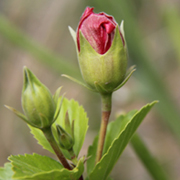Short story writers have until May 15 to submit their entries to the Kendeka Prize for African Literature.
The call out for submission for the 2023 prize was made on Saturday January 28, during the inaugural Kendeka Lecture, held at the Mount Kenya University. The lecture, titled Why Literature Matters and Literary Prizes Matter, was delivered by Prof Austin Bukenya.
Entry for the prize is free.
“The Prize will be awarded for the best unpublished short story either in fiction or creative non-fiction,” says a statement from the Kendeka secretariat, signed by Andrew Maina, the founder. “The first prize will be Ksh100,000, while the second and the third prizes shall be Ksh50,000 and Ksh25,000 respectively.”
The announcement was made by Prof Goro Kamau, the incoming chair of the Kendeka Prize for African Literature.
Entrants must be born in, or are citizens of any African country. Manuscripts should be of between 3000 and 5000 words and must be in English.
The overall winner of the 2022 Prize was Scholastica Moraa,(Kenya) for her short story titled ‘Chained’. Adaoro Raji, (Nigeria) was the first runners-up for her story ‘Star Boy’, while Beverley Ann Abrahams, from Zimbabwe was the second runners-up for her short story, ‘Isithunzi’.
The winner of the 2021 Kendeka Prize for African Literature was Jenny Robson, Botswana, author of Water for Wine. Fatima Okhousami, from Nigeria, was the first runners-up for her story, The Women of Atinga House, while Okpanachi Irene Ojochegbe, from Nigeria, was the second runners-up for her story, Au Pair.
Other submission guidelines.
- One entry per writer.
- Entries should be attached in Microsoft Word or Rich Text format, with the title of the story as the file name.
- The first page of the story should include the title of the story and the number of words.
- The entry must be typed in Times New Roman 12-point font with 1.5 line spacing.
- Entries must be sent as attachments to an email.
- The email to which the story is attached must include the legal name of the writer, telephone number, a short Bio, age, and country of residence.
- Entrants agree that the prize organizers may publicize the fact that a story has been entered, long listed, shortlisted or won the prize.
- An author of a long listed story agrees to its inclusion in the anthology, and to work with editors to get the story ready for publication.
- The long listing of a story is not a guarantee that the story shall be included in the anthology.
- The winners, first and second runners-up in the past Kendeka Prize, are not eligible.
- Every author confirms that the submission is their original work, it has not been published anywhere else, and that it has not been long listed in this prize or in any other prize.
- The entrant gives exclusive global print and digital rights to Solano Publications Ltd for the long listed stories for publication in an anthology. The author retains the copyright.
- The judges’ decision is final.


